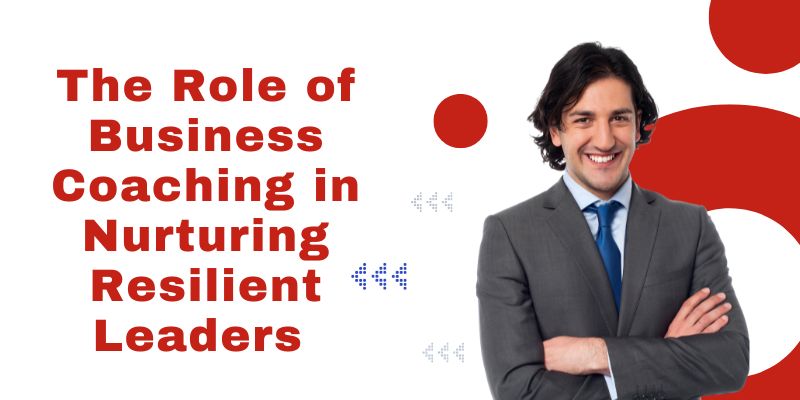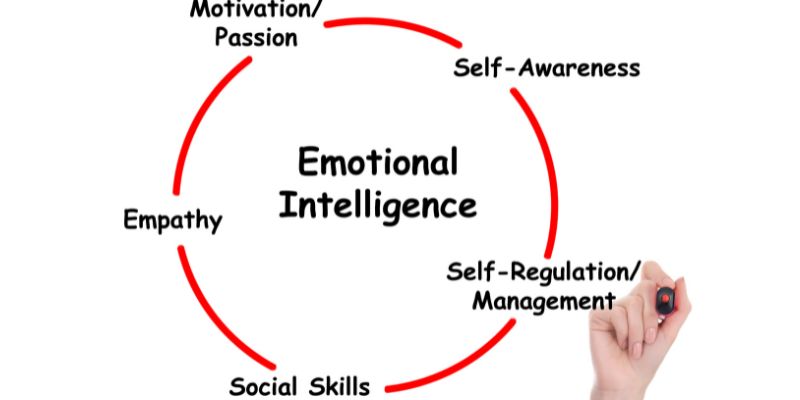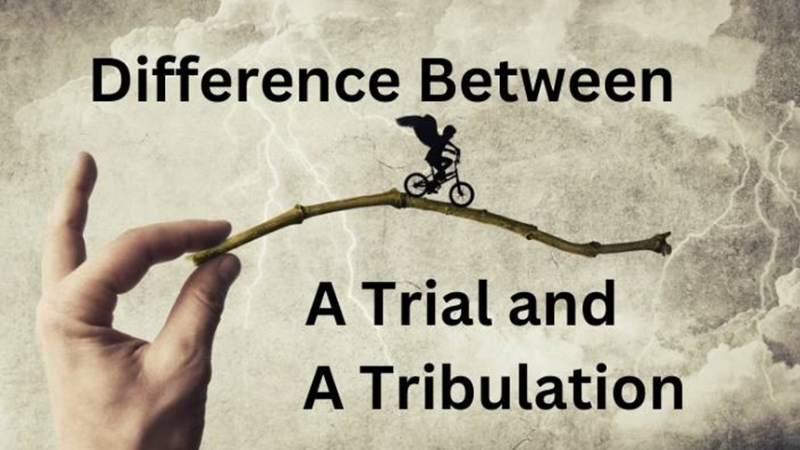The Role of Business Coaching in Nurturing Resilient Leaders

In today’s business world, resilient leaders are like anchors that keep ships steady during storms. These leaders are strong and adapt to changes, helping their teams through tough times.
But remember, being strong and adaptable isn’t just natural for everyone. It’s something you learn and develop over time. That’s where business coaching helps shape and strengthen these qualities in leaders.
I am Gordon Grigg, a male mentor and business coach from Nashville, Tennessee. In this blog post, I will explore the crucial role of business coaching in developing resilient leaders.
Resilient leadership is about growing and adapting. When things get tough, a strong leader doesn’t just get through it. They learn from it and come out even stronger, turning problems into opportunities.
So, why is being resilient so important? In my experience, businesses with strong leaders have a positive vibe. The employees are happier, people trust them more, and the company does better financially. These leaders don’t just get by; they plan for success and growth.
Being a leader has challenges, like changes in the market, team issues, and personal stress. However, these leaders are resilient and see these challenges as opportunities. They use them to generate new ideas, improve teamwork, and achieve long-term success.
The Role of Business Coaching in Building Resilience:
1) Developing the Right Mindset:

A resilient mindset doesn’t shy away from challenges; it embraces them. Business coaching helps leaders shift their perspective, seeing obstacles as growth opportunities rather than setbacks. This mindset is crucial for leaders to navigate the ever-changing business landscape, adapt to unforeseen challenges, and confidently lead their teams.
Coaching Techniques for Resilience:
Various coaching techniques can be employed to foster resilience.
- Strength-based coaching: This approach focuses on a leader’s strengths rather than their weaknesses. By leveraging what leaders are already good at, they can overcome challenges more effectively and confidently.
- Narrative coaching: This technique helps leaders reframe their personal and professional stories in empowering ways. Leaders can change their perspective on past events and future possibilities by understanding and reshaping their narratives.
Real Case Study: The Good School’s Strengths-Based Approach
Background:
The case study titled “A case study of ‘The Good School:’ Examples of the use of Peterson’s strengths-based approach with students” focuses on applying Peterson’s research in a large K–12 school in Australia. The study centers on creating enabling institutions and applying character strengths.
Initiatives:
The school introduced five character strengths initiatives:
- Character strengths in English literature: In subjects like English literature, students used the VIA Character Strengths Model to analyze characters in films and writings, such as Tim Burton’s “Edward Scissorhands” and Franz Kafka’s “The Metamorphosis.”
- Strengths-based approach in sport: Sport is a significant aspect of the school’s culture. The school introduced the Positive Sports Coaching program, focusing on character strengths, optimism, and process praise.
- Using character strengths with senior students who hold leadership positions: Student leaders used the VIA character strengths profile to co-create their leadership vision, mission, and goals for the year.
- Strengths-based approach to student counseling: Counselors adopted a strengths-based approach, helping students see potential strengths in their weaknesses and using therapeutic techniques from well-being therapy.
- Positive Education Curriculum: A new program introduced a Positive Education Curriculum for years K–10, focusing on character strengths.
Outcome:
The school observed positive benefits from these initiatives. For instance, in sports, students began to recognize and praise the strengths they saw in other players, such as courage, persistence, and teamwork. In counseling, students learned about their problems from a strengths perspective, understanding how certain strengths could be tempered in specific situations.
I can help you integrate these strengths-based approaches into your organization or personal leadership journey.
By understanding and leveraging your inherent strengths, reframing challenges, and adopting a resilient mindset, you can navigate the complexities of the business world with confidence and efficacy.
2) Enhancing Emotional Intelligence

Understanding the Link Between Emotional Intelligence and Resilient Leadership:
Emotional intelligence (EI) plays a pivotal role in fostering resilient leadership. Leaders with high EI are better equipped to handle challenges, adapt to changing situations, and maintain a positive outlook even in the face of adversity. By understanding their own emotions and those of others, they can navigate complex situations with greater ease and effectiveness.
Here are practical strategies for business coaches to boost leaders’ emotional intelligence:
- Self-awareness exercises: Encourage leaders to reflect on their emotions, triggers, and reactions regularly. This can be done through journaling or mindfulness practices.
- Empathy development: Role-playing exercises can help leaders step into the shoes of others, fostering a deeper understanding and connection.
- Feedback loops: Create a safe environment for leaders to receive and give feedback. This helps in recognizing areas of improvement and reinforces positive behaviors.
- Emotion regulation techniques: Introduce leaders to techniques such as deep breathing, visualization, and grounding exercises to manage intense emotions
By incorporating these strategies, business coaches can effectively enhance the emotional intelligence of leaders, paving the way for more resilient and impactful leadership.
FedEx Express: A Testament to Emotional Intelligence in Leadership
FedEx Express, a global courier delivery giant, recognized the importance of emotional intelligence in leadership and embarked on a journey to embed it within its organizational culture. They initiated a “People-First Leadership” program, aiming to enhance the EI of their leaders.
The results were transformative. Leaders who participated in the program showcased a 15% increase in decision-making abilities, a 13% increase in relationship quality, and a notable improvement in overall leadership effectiveness. This case underscores the undeniable link between high EI and successful, resilient leadership.
How I Can Guide Business Owners in Elevating Their Emotional Intelligence:
- Personalized self-awareness exercises: self-awareness is foundational to EI. Through tailored coaching sessions, I help business owners introspect, understand their emotional triggers, and recognize their reactions. Techniques like journaling or guided reflections offer clarity and insight into one’s emotional patterns.
- Empathy Development Workshops: Drawing from years of experience, I conduct workshops aimed at enhancing empathy. Through role-playing and real-world scenarios, business owners learn to understand and appreciate diverse perspectives, fostering better communication and collaboration.
- Constructive Feedback Mechanisms: Feedback is a powerful tool for growth. In our coaching sessions, we create an environment conducive to open dialogue. Business owners learn to give and receive feedback constructively, identifying areas of improvement and reinforcing positive emotional behaviors.
- Emotion Regulation Techniques: Leaders often face high-pressure situations. I introduce business owners to techniques such as deep breathing, visualization, and grounding exercises. These tools help manage intense emotions, ensuring clear-headed decision-making even in challenging circumstances.
Today, emotional intelligence is not just an asset; it’s a necessity. Through dedicated coaching, business owners can harness the power of EI, leading their organizations with empathy, clarity, and resilience.
3) Building Adaptive Decision-Making Skills:

In the ever-evolving business landscape, making informed and adaptive decisions is paramount. Leaders are often faced with situations that demand quick thinking, flexibility, and a deep understanding of the broader implications of their choices. As we navigate times of uncertainty and change, adaptive decision-making becomes not just a skill but a necessity.
The Importance of Adaptive Decision-Making in Uncertain Times:
Uncertainty is a constant in business. Market dynamics shift, consumer preferences evolve, and unforeseen challenges emerge. In such scenarios, traditional decision-making models may fall short. Adaptive decision-making, on the other hand, allows leaders to remain agile. It involves assessing situations in real-time, being open to new information, and being willing to pivot when necessary. This approach ensures that businesses can respond effectively to challenges, seize new opportunities, and maintain a competitive edge.
Here is the guidance for business coaches to support leaders in decision-making:
- Scenario Planning: One of the tools I often introduce to leaders is scenario planning. It involves envisioning multiple future scenarios based on current data and potential variables. By exploring these ‘what if’ scenarios, leaders can better prepare for a range of outcomes and make proactive and informed decisions.
- Risk Assessment Workshops: Understanding and assessing risk is crucial. I conduct workshops that help leaders identify potential risks, gauge their impact, and develop mitigation strategies. This structured approach ensures that decisions are made with a clear understanding of potential repercussions.
- Feedback Loops: Decision-making should be a continuous learning process. I encourage leaders to establish feedback mechanisms post-decision. This understanding of the implications of their choices refines their decision-making process over time.
- Cultivating a Growth Mindset: A growth mindset, where challenges are viewed as opportunities for learning, is essential for adaptive decision-making. I work with leaders to shift their perspectives, helping them see setbacks as valuable feedback rather than failures.
- Leveraging Collective Intelligence: No leader has all the answers. I guide leaders in creating an environment where team members feel empowered to share insights and perspectives. Tapping into the collective intelligence of a team often leads to more holistic and effective decisions.
Adaptive decision-making skills can be honed and refined. As a business coach, I provide leaders with the tools, strategies, and mindset shifts necessary to navigate the complexities of the business world with confidence and foresight. Through dedicated coaching, leaders can transform their decision-making process, ensuring they’re well-equipped to lead their organizations to success, no matter what challenges lie ahead.
4) Cultivating a Growth Mindset in Leadership

A growth mindset, as conceptualized by Dr. Carol Dweck, is the belief that abilities and intelligence can be developed through dedication and hard work. This contrasts with a fixed mindset, where individuals believe their talents are innate and unchangeable. In the realm of leadership, a growth mindset is invaluable. It fosters adaptability, resilience, and a continuous learning attitude—all crucial traits for navigating the ever-evolving business landscape.
Under Satya Nadella’s leadership, Microsoft underwent a significant cultural shift. Nadella encouraged a growth mindset among his employees, emphasizing learning from failures and viewing challenges as opportunities.
This shift led to increased collaboration, innovation, and a renewed focus on customer needs. Microsoft’s transformation underlines the power of a growth mindset in driving organizational success.
How I, Gordon Grigg, Can Help Business Leaders Cultivate a Growth Mindset:
- Tailored Workshops: I offer workshops designed to help leaders understand the principles of a growth mindset. Leaders learn to recognize and reframe fixed mindset tendencies through interactive exercises and discussions.
- Feedback Mechanisms: Constructive feedback is a powerful tool for growth. I guide leaders in creating environments where feedback is encouraged, helping them learn from both successes and setbacks.
- Real-world Application: Through one-on-one coaching sessions, I help leaders apply growth mindset principles to real-world challenges they face in their roles. This practical application ensures that the concepts move beyond theory and into daily leadership practices.
- Continuous Learning Opportunities: I provide leaders with resources, readings, and tools to further their understanding of a growth mindset and its benefits.
- Accountability Partnerships: To ensure the long-term adoption of a growth mindset, I encourage leaders to form accountability partnerships. These partnerships serve as a support system, helping leaders stay on track and continuously evolve.
Today, a growth mindset is more than just a concept—it’s a leadership imperative. With dedicated coaching and guidance, leaders can transform their approach, leading their organizations with adaptability, resilience, and a forward-looking perspective.
In the intricate tapestry of today’s business world, the threads of resilience, adaptability, and foresight are paramount.
Conclusion

With its myriad tools and techniques, business coaching serves as the loom, weaving these threads into the fabric of effective leadership. As we’ve explored, emotional intelligence, adaptive decision-making, and a growth mindset are not just theoretical concepts but tangible skills that can be honed and mastered. Overcoming obstacles becomes less about confronting barriers and more about leveraging them as stepping stones to greater heights.
Having walked this journey with numerous leaders, I’ve witnessed the transformative power of dedicated coaching firsthand. If you’re a leader looking to elevate your game, not just to navigate but to truly thrive in the ever-evolving business landscape, I invite you to embark on this journey with me.
Together, we can chart a course toward leadership excellence, ensuring you lead confidently, clearly, and unwavering resilience.
Reach out to me, Gordon Grigg, or call me at 6156309114. and let’s co-create your leadership legacy.
The Role of Business Coaching in Nurturing Resilient Leaders Read More »






















































